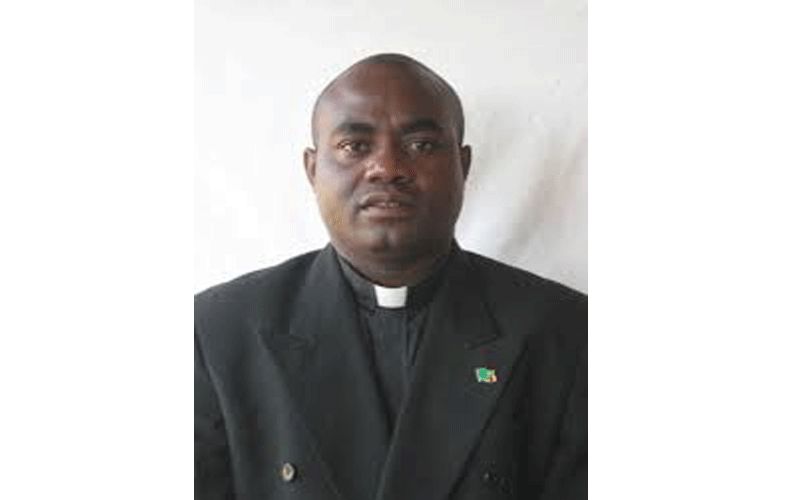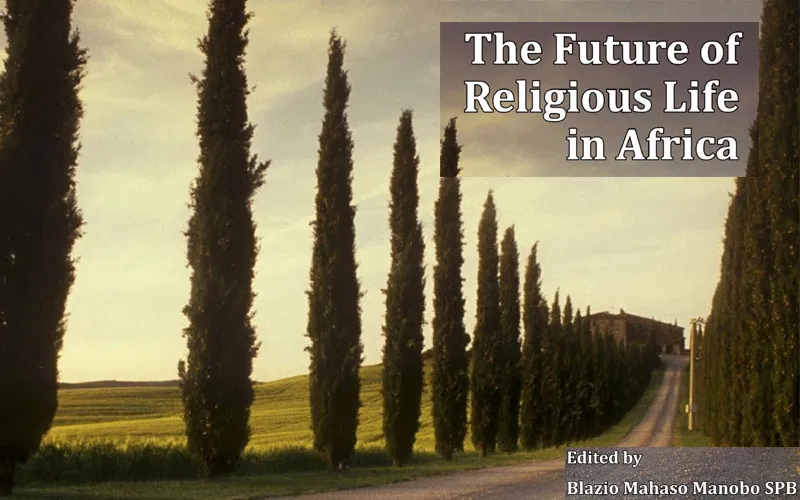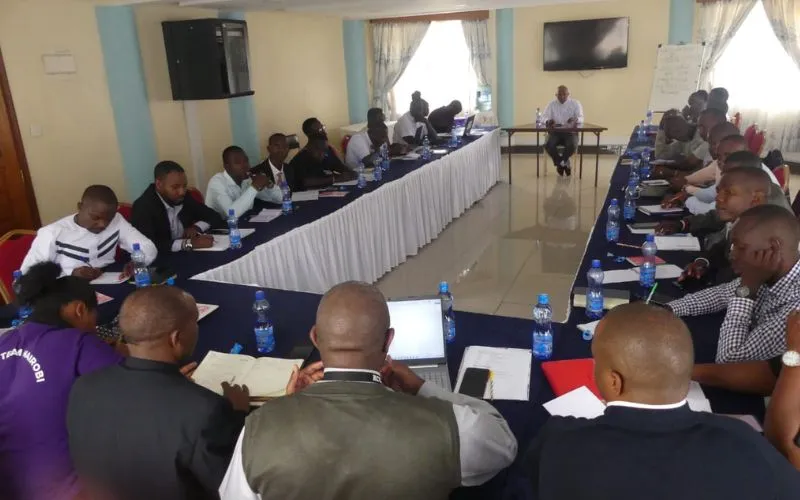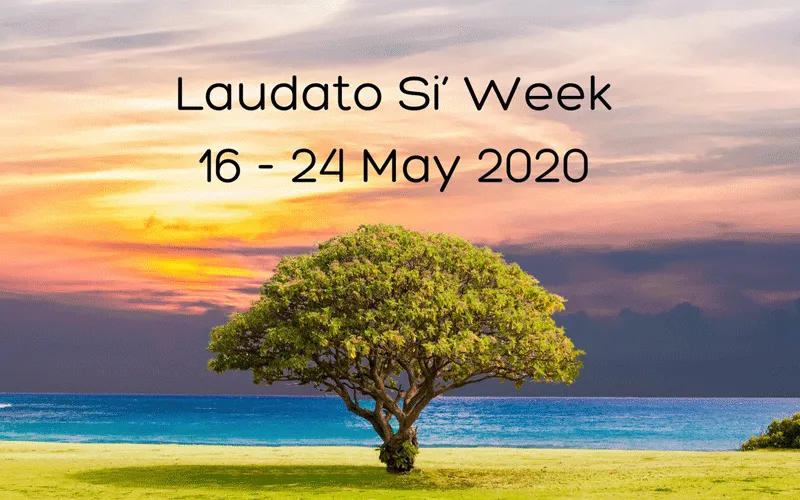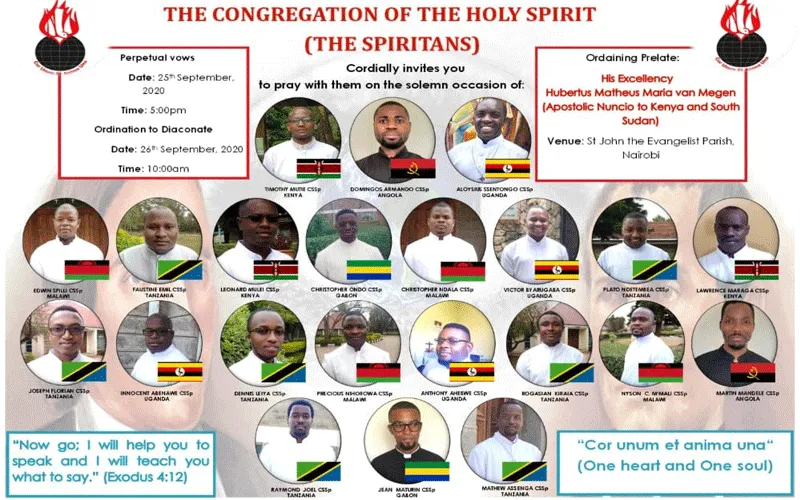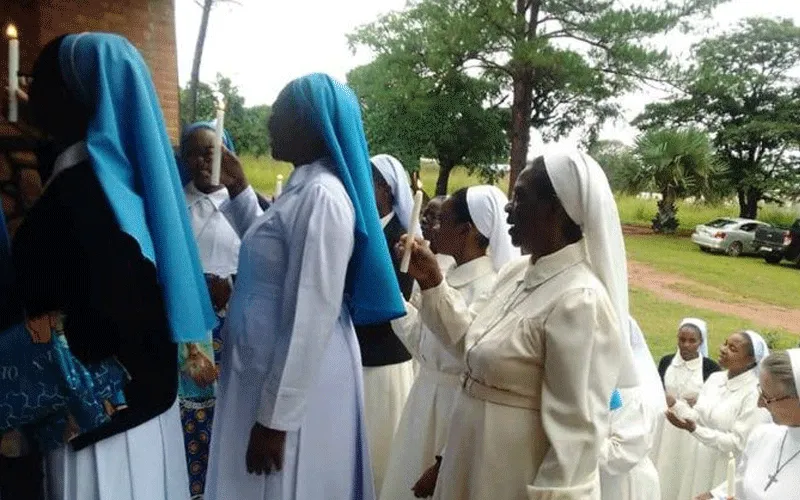The Cleric’s sentiments are echoed by Br. Blazio Manobo, a member of the Congregation of the Brothers of St. Paul in Zimbabwe who says that the future of Religious Life in Africa lies hugely in people who will invest hugely in social media.
Br. Blazio who compiled the book that was published by the South African Catholic Online Books says that at the onset of social media, most Religious Orders and Societies of Apostolic Life were skeptical to the use of the technology, which they said was prone to abuse.
The situation, he says, has changed, with members of Religious Orders and Societies of Apostolic Life belonging to multiple WhatsApp groups and attending virtual meetings with the COVID-19 restrictions that limit physical interactions.

In an interview with ACI Africa, Sr. Elizabeth Ngozi Okpalaenwe said adapting to the changing technology should not be done with disregard of the charisms of Religious Orders and Societies of Apostolic Life.
(Story continues below)
“A lot has changed in Religious Life and we need to talk about it,” Sr. Elizabeth says and adds, “Before, people joined Religious Life for the reason that God was calling them and that they were coming to serve God. Now, many people are more interested in material gain than service to God.”
The member of the Missionary Sisters of Our Lady of the Holy Rosary (MSHR) notes that technology is good if used well but can also be abused to cause loss of focus in Religious Life.
“Before, I knew that Sisters were not allowed to own phones. There used to be one phone in a community, which was used by all members of the community in the spirit of sharing and detachment from material possessions. Today, I see some with even two or three phones and I wonder what they do with all those devices,” the Nairobi-based nun says.
According to the Nigerian-born nun who holds a PhD in counselling and lectures at the Kenyan-based Marist International University, a constituent of the Catholic University of Eastern Africa (CUEA), Religious men and women who do not plan their time well end up spending time meant for prayers on their phones, chatting with their friends.

“We need to understand that there is time for everything. A time to chat on our phones and a time to pray,” she says, and adds, “As religious people, there should be something different between us and lay people because we have vowed what lay people don’t vow to.”
Sr. Elizabeth says that the love of God is lacking in some members of Religious Orders and Societies of Apostolic Life and that some are turning to social media to quench their thirst for the love they lack from their brothers and sisters in their respective communities.
In her book chapter, “Consecration of religious life as a covenant,” Sr. Elizabeth who has given numerous workshops to Sisters preparing for their perpetual profession sought to explain the meaning of consecration as not just an act of giving away one’s life, but also, “a call to sanctify possessions, and spiritual possessions for the kingdom of God.”
The widely published nun who specializes in counselling in the African context also authored the second chapter of the book, “Discernment to religious life” in which she questions the degree of discernment within Religious Orders and Societies of Apostolic Life in Africa.
“Many (Religious) Congregations in Africa do a lot of screening and discernment before they choose their candidates for training, but there seems not to be enough discernment before and when they become professed Religious members,” she says.

She notes that discernment, which refers to the process of reflection on what is going on inside an individual, in their thoughts, feelings, impulses, urges and fears, likes and dislikes in order to identify their source and to relate them to their lives and their relationship with God, is not an easy task.
“In fact, it is a lifelong process. It requires a constant communication with God,” Sr. Elizabeth says.
“Some people spend years in a (Religious) Congregation discerning their call and realize, even after profession, that they are not suited for that particular Congregation,” she tells ACI Africa, underscoring the need for both members of Religious Orders and Societies of Apostolic Life and Laity to be kind to people who express their desire to quit Religious Life.
In the new book, Br. Blazio who lectures in Systematic Theology at the Catholic University of Zimbabwe also addresses the status of Religious Orders and Societies of Apostolic Life in Africa where there is a steady increase in the number of people who choose Religious lives as compared to Europe where Religious vocations are on a downward trend.
The Religious Brother quotes statistics provided by Agenzia Fides in 2018, which indicate that despite an overall decrease in the number of vocations to Consecrated Life, Africa seems to register an increase in the number of people becoming Priests and Religious Sisters and a decline in those interested in becoming Religious Brothers.

Compared to 2017, Africa had an additional 198 Priests, 943 Religious Sisters and registered a decline of Religious Brothers by 50. A significant growth was also recorded in Asia.
In America, the number of priests dropped by 769 while that of Religious Sisters dropped by 503 in 2018. The number of Religious Brothers in America also dropped by a mammoth 3,775. Europe experienced the biggest drop in the number of Religious Brothers by 8,370 in 2018 alone, Bro. Blazio indicates citing Agenzia Fides.
He notes that the challenge of Religious Life world over is not in the numbers, much as the statistics provide “the basis upon which we can envision the future of the consecrated life in Africa.”
“Religious Congregations (need to) contextually redefine their identity in accordance with the signs of the time, while at the same time remaining faithful to their founding charisms,” the Zimbabwean Brother says.

Br. Blazio who has worked as Director of his Religious Order, Brothers of St. Paul in Zimbabwe, for eight years and Vicar General of the Order for nine years says the book is timely and seeks to address the questions that members of Religious Orders and Societies of Apostolic Life have always feared to ask.
“The challenges we face today in Religious Life are different from what our founders faced. We, therefore, need to reflect anew in order to continue being relevant,” he told ACI Africa.
Some of the questions that members of Religious Orders and Societies of Apostolic Life ask, Br. Blazio divulges, including whether Religious Life is still relevant in the current world.
Are we making any unique contribution to the world? Do we live Religious Life the way it was defined from the beginning or are there changes we need to make? Do our vows as Africans such as the vow of poverty appeal to someone who has grown up surrounded by poverty? If vocations are diminishing in Europe, what is the guarantee that Africa will not follow suit? These are the questions that the book attempts to explain.
Agnes Aineah is a Kenyan journalist with a background in digital and newspaper reporting. She holds a Master of Arts in Digital Journalism from the Aga Khan University, Graduate School of Media and Communications and a Bachelor's Degree in Linguistics, Media and Communications from Kenya's Moi University. Agnes currently serves as a journalist for ACI Africa.
